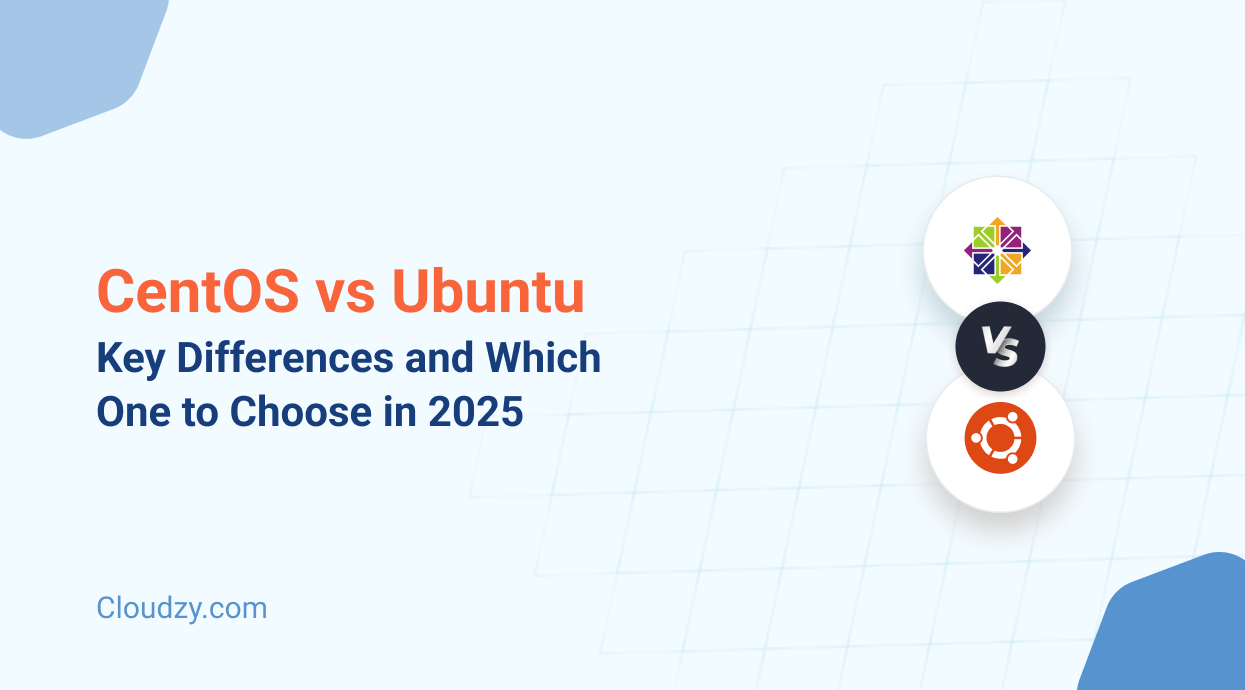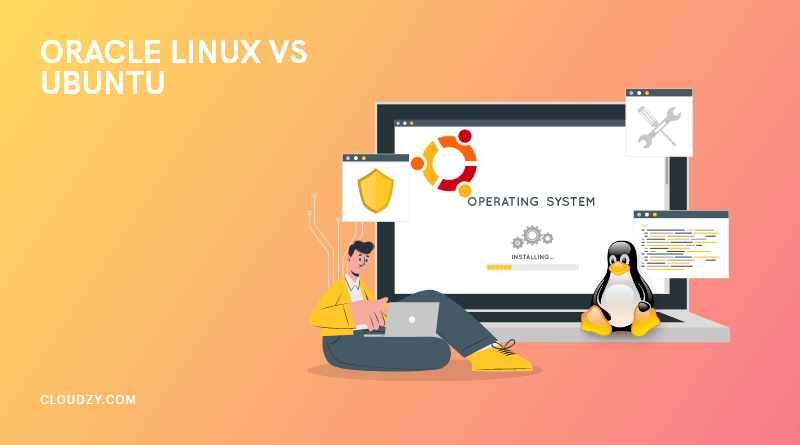For close to two consecutive decades, Ubuntu has acted as the pre-eminent Linux distro. It is by far the most used and the most popular Linux distro in the world. However, this status has not been easy to achieve for Ubuntu and its massive open-source development apparatus. Throughout the years, many other successful distros have attempted to challenge Ubuntu for the title of the most popular Linux distro. After all, let’s not forget that Ubuntu itself is derived from Debian, so competition in this field is quite high, even at the cost of forking other distros. While certain other distros have come close to challenging Ubuntu, none of them have managed to quite dethrone it. CentOS 8 was perhaps the best example of this. However, the formerly popular distro went End of Life in late 2021 in a controversial decision by the head publisher Red Hat. Recently, Manjaro also has come close to putting up a fight with Ubuntu, and while I did point out in my Ubuntu vs. Manjaro article that it does go toe to toe with Ubuntu, the popularity of Ubuntu has remained intact. The latest in line of Linux distros challenging Ubuntu is Oracle Linux, so in this article, I will be comparing Oracle Linux vs. Ubuntu to see if Ubuntu can be replaced anytime soon or not!
What is a Linux Distro?
If you have used either Windows or macOS, you know that these operating systems are developed centrally by their respective producers and publishers, those being Microsoft and Apple. Well, things are a bit different with Linux. There is no single publisher of Linux. There is not even a single Linux “version,” so to speak. Instead, the base code and core of Linux (known as Linux Kernel) have been expanded by many different developers. Each of these developers tunes and customize Linux Kernel to match their own vision and understanding of what an OS needs to be. The Linux versions that are published by these developers are then known as Linux distributions, or Linux distros for short.
For many users who lack a general understanding of how the Linux ecosystem works, Ubuntu is almost synonymous with Linux. However, despite its overwhelming popularity and iconic status, Ubuntu is but one of these distros, and there are many, many other reputable and reliable alternative options out there. As much as we can debate on whether you should choose Oracle Linux or Ubuntu, it’s important to remember that at the end of the day, they’re both Linux. As a result, they are more similar than different. Wanna know more about the best Linux distros? Check out this article by our friends at itsfoss!

Backgrounds
Now that we know about the overarching status of the Linux ecosystem and the myriad of different distros that are competing with each other, I think it would be great to also get to know a little bit more about the distros that we are going to be comparing on an individual level. Learning more about each of these distros on their own is great because it will give us the context that we need to know when we are comparing Oracle Linux vs. Ubuntu in a head-to-head comparison.
Ubuntu
First, let’s get to know the big guy in the room. Ubuntu was first released in 2004. And a little fact that is often swept under the rug is that Ubuntu does, in fact, use the base code of Debian. But whereas Debian’s base code is amazing, Ubuntu is not successful because it uses this base code. It’s about how it uses this base code. Ubuntu has added a ton of additional features and codes to Debian’s core and has completely overhauled it to the point that it is an almost completely new product.
Throughout the years, Ubuntu has had a steady release cycle which has worked wonders in keeping the OS up to date through adding new features and enhancing the code. Known for its iconic implementation of the GNOME desktop, Ubuntu is by far the most popular and used Linux distro in the world. According to KommandoTech, 32 percent of all Linux OS distributions currently used in the world belong to Ubuntu. If you think this stat is significant, add to it the fact that out of every 1 million websites that currently run on the World Wide Web, nearly 20 percent of them are operated and hosted via Ubuntu.
 The Obvious Choice
The Obvious Choice
The majority of Linux-run servers are using Ubuntu; why not you? Discover why everybody loves Ubuntu — get an optimized Ubuntu VPS
Get your Ubuntu VPSOracle Linux
Surprisingly enough, Oracle Linux is not that much younger compared to Ubuntu. Originally released as part of the genesis package in 2006, it is only two years younger. Oracle Linux is developed and released by its namesake company Oracle, which is the third largest software development company in the world and is based in Texas. Similar to how Ubuntu has borrowed Debian’s based code, Oracle Linux is also based on another distro’s base code. Oracle Linux uses the base code of RedHat’s Red Hat Enterprise Linux, also known as RHEL.
Oracle Linux does not have the overbearing market share that Ubuntu has and neither is it as popular as Ubuntu. However, with the massive support and development effort allocated to it by Oracle, it is en route to becoming one of the best Linux distros out there. Since Oracle is also responsible for the development of a number of major products in the tech world, such as Oracle Java, the inherent capability of these programs and Oracle Linux to work in compatibility is a major selling point. Especially since RedHat pulled the plug on CentOS, the amount of market share freed up is a major opportunity for Oracle Linux to become more mainstream.
Oracle Linux vs. Ubuntu: Head to Head
With all of that said and done, It’s time to compare Oracle Linux vs. Ubuntu in a head-to-head showdown. To do this, I devised seven separate categories to compare these two distros in. These categories will be Security, documentation and data centers, ease of use, costs, personalization, tech support, and finally, hosting and virtual machine compatibility. We will pick a winner in each category, and the operating system with the higher overall score will be the winner of the contest. Here we go!
Oracle Linux vs. Ubuntu: Security
First, we need to define what we mean by security. One aspect of security is the OS’ inherent security in its original state without any additional third-party programs. The second aspect is the security potential ceiling that each OS can attain with the use of third-party programs available to it. While Ubuntu originally lacked a built-in firewall and security measure, with years of updates and programming, Ubuntu has reached a state of “security out of the box.” This means that Ubuntu as an OS is highly secure with its default firewall and embedded security, even compared to the likes of Windows. As the most popular option among Linux distros, it also benefits highly from all sorts of different third-party anti-viruses and firewalls available to it.
With Oracle Linux, we have a similar situation. The notable difference is that it takes things even further and uses a host of different programs, technologies, and measures to ensure the default security of the program. Both programs are excellent out of the box. However, there are more things you can do on your own to make your distro more secure on Ubuntu. So this round goes to Ubuntu.
Oracle Linux vs. Ubuntu: Documentation
Documentation involves the amount of public documentation that each distro has on the Internet. These sources of documentation help the user workaround potential errors and learn about the features and quirks of their Linux distro. Similar to security, there are again two aspects to this. First is the “official” sources of documentation provided by Canonical and Oracle as publishers. And the second aspect is the amount of third-party documentation that provides related information on different forums and websites. Starting with Ubuntu, they have their own dedicated data center that issues fully up-to-date PDF files that document all the features and the ins and outs of their distro. There is also a search bar that you can use to look up any subject you need to know about.
By contrast, while Oracle Linux does provide certain amounts of information on its website as part of its Learning Library, the overall amount of documentation is nowhere near as sophisticated and inclusive as Ubuntu. Things get even worse when we take third-party programs into account. Ubuntu’s popularity means that it has a much larger online audience and representation on the web. So as far as documentation is concerned, Ubuntu is simply much better and more accessible. So this round goes to Ubuntu as well.
Oracle Linux vs. Ubuntu:Ease of Use
This is another category in which both of these Linux distros excel. Both programs have over a decade of development history and many versions behind them, and in this time, they both have worked to make their programs as easy to use and beginner-friendly as possible. The installation process for both of them is fairly similar and the general setup phase is nothing to worry about. In day-to-day use, both of them are amazing and will handle large traffic outtakes or intensive hardware usage really well. However, the key takeaway that can differentiate between these two distros is their inherent compatibility with other programs and features.
For example, Ubuntu has its own dedicated Software Center which is a real miracle in making the accumulation and installation of software much easier. However, Oracle’s massive software development apparatus also comes into play. Oracle’s ecosystem is relatively well-known, and it’s an absolute treat to use in day-to-day activities. So while Ubuntu takes the cake in a trivial category like getting software (which can be done from all manners of official and third-party sources), Oracle Linux’s inherent compatibility with other Oracle products such as Oracle Java makes it the winner here.
Oracle Linux vs. Ubuntu: Costs
This is simply a no-contest category between the two distros. Both of these Linux distros are free of charge in regard to their licensees. However, the key difference here is that there are a set of services offered by Oracle Linux that are paid only. These services usually have to do with support for those set of users that wish to use Oracle Linux as their hosting tool and will need an abundance of resources; special Oracle Linux releases as well as constant tech support to ensure their hosting server operation goes smoothly. Now in fairness to Oracle Linux, Ubuntu has no official tech support, to begin with. So it’s not like they are charging money for something that Ubuntu gives out for free. But on the other hand, the prices are rather outrageous, with the cheapest package starting at $499 per year for the Oracle Linux Basic Limited package, and it just gets more outrageous when it can go all the way up to $6897 per year for packages like Oracle Linux Premier.
Could we get the same level of support from Ubuntu? No. But could we work a little harder on third-party documented sources and fix these issues ourselves without paying Oracle $500? Yes. With that said, I think this round should go to Ubuntu, which is always free and has no feature behind a paywall.
Oracle Linux vs. Ubuntu: Personalization
Linux Kernel itself is the embodiment of personalization and customization. This inherent quality is the defining factor that has led to the production and release of so many popular Linux packages. It is also the main reason that many developers, admins, and coders choose it as their go-to OS. However, each Linux distro also has a secondary layer of personalization and customization that each user can perform in order to make their work environment as desirable as possible. For example, they can choose their own desktop. Ubuntu’s default desktop that comes pre-installed is the famous GNOME. However, on Oracle Linux, you can choose between GNOME and KDE desktop, which is a reliable alternative. So out of the box, Oracle gives you more options.
However, in my opinion, this is quickly overcome by the fact that with Ubuntu’s Software Center, you get access to thousands and thousands of different third-party and even official extensions that will simply overwhelm you with the amount of personalization available. The initial choice of desktops is also irrelevant since you can use any of KDE, Budgie, XFCE, and MATE desktop options. So Ubuntu is the winner of the personalization category as well, gaining a 4 to 1 advantage.
Oracle Linux vs. Ubuntu: Hosting and VM Compatibility
Virtual Machines are gaining more and more traction these days. Services like VPS are playing a major role in globalizing businesses, and they have managed to become a very reliable method of hosting websites compared to shared and dedicated hosting in a very short amount of time. Considering the fact that the general audience of Linux happens to be coders, developers, and admins, Linux usage alongside virtual machines and VPS services have also skyrocketed in recent years. So I believe that the availability and compatibility of a Linux distro in regards to hosting and VM compatibility are not only relevant but important.
As I already mentioned earlier, Ubuntu is incredibly reliable in hosting. Out of every million websites on the web, nearly 20 percent of them are managed and run using Ubuntu. This is a testament to the capability of Ubuntu as a hosting tool. However, most of these websites are hosted on Ubuntu by virtue of the legacy reputation of the platform. Technically speaking Oracle VM Virtualbox program, which is part of the Oracle ecosystem, has excellent synergy with Oracle Linux. Couple this with the fact that Oracle Linux runs perfectly with Oracle Java, and you have a technical winner here!

Oracle Linux vs. Ubuntu: Tech Support
Linux, in general, tends to be harder than average operating systems like Windows and macOS to work with. So when it’s time to first engage with a Linux distro, it’s best that you go for an option that is either incredibly easy to use or the alternative, which is going for a distro that provides you with tech support. This latter option is especially recommended if you are going to use your Linux distro for sensitive tasks such as running a website or managing servers or hosting since any small mistake can lead to major consequences if not tackled right away with the correct solution.
As I mentioned previously, Ubuntu has no tech or customer support. It makes up for this by having a centralized documented data center that will help you out with questions and problems that you may be having. It also has a lot of third-party documentation that will also help you out. Oracle Linux does not have the same level of documentation. However, it does have paid official support. While good documentation is great, it’s not great enough to replace official tech and customer support, even if they are behind a paywall. So as far as support goes, this round also goes to Oracle Linux, bringing the total tally to 4-3 in Ubuntu’s favor.
Should I Go From Ubuntu to Oracle Linux?
There is no universal answer to this question that will work for everyone. Even though Ubuntu technically won the contest in our head-to-head contest, the specific use cases that each of these OS options excels at make it rather difficult, if not impossible, to give out a definitive answer that will apply to all sets of users. But if I were to come up with a vague generalization in order to better document the target audience of these distros, I would have to say that if the tasks that you require from your distro do not extend beyond the generic and everyday tasks that the majority of Linux users perform, then Ubuntu is simply better by every metric in the book.
However, Oracle Linux comes as part of a sophisticated ecosystem that will greatly benefit you if you choose to become a part of it. Especially if you want to manage a server, host a website or use virtual machine services such as a VPS with your Linux distro, then I would definitely recommend Oracle Linux over Ubuntu. Keeping track of everything in this article can get a little bit hard since it’s a long read, so here I will leave a general comparison table in order to keep track of the comparison points in the article and choose your Linux distro easier.
| Linux Distro | Security | Documentation | Costs | Support |
| Ubuntu | Very High | Very High | None | None |
| Oracle Linux | High | Average | Paid Support | Paid |
| Linux Distro | Hosting Options | Ease of use | System Requirements |
Personalization
|
| Ubuntu | High | High | Low | Very High |
| Oracle Linux | Very High | High | Very Low | Average |
Conclusion
Getting to choose a proper Linux distro can become a little bit confusing if you choose to read too much into all the different options out there. I recommend that you simply choose a reliable and secure option to learn the ropes around Linux with it and then use your acquired experience to then explore your options and choose another distro if your needs dictate so. To do this, I highly recommend checking out Cloudzy’s Ubuntu VPS package. Chances are you do not want to jeopardize your own Windows or macOS desktop system by installing an additional OS. Cloudzy is here to save the day with its anti-DDoS servers that feature more than 15 locations and stellar latency. Add flexible payment options and an ever-present 24/7 customer support on top, and Cloudzy’s Cheap Linux VPS services will be all you need to start learning more about Linux and its different distros firsthand!
FAQ
Oracle Linux vs. Ubuntu: Which One is Faster?
They are both really agile Linux distros. However, since Oracle Linux uses the extremely performance-oriented base code of RHEL, it slightly outperforms Ubuntu. However, this is rather trivial, and overall both are quite fast.
Oracle Linux vs. Ubuntu: Which One Has A Lower System Requirement?
Both of these distros can run on a minimum of 1GB ram and a 1.0 GHz Dual Core processor. However, Ubuntu has a higher recommended requirement, So taking that into account, Oracle Linux has a lower overall system requirement.
Is Oracle Linux a Viable Replacement for CentOS?
Yes. CentOS was released by Red Hat. Oracle Linux also uses much of the base code of another RedHat product, RHEL. Not only are they similar, but with CentOS going EoL, Oracle Linux is the perfect alternative.




